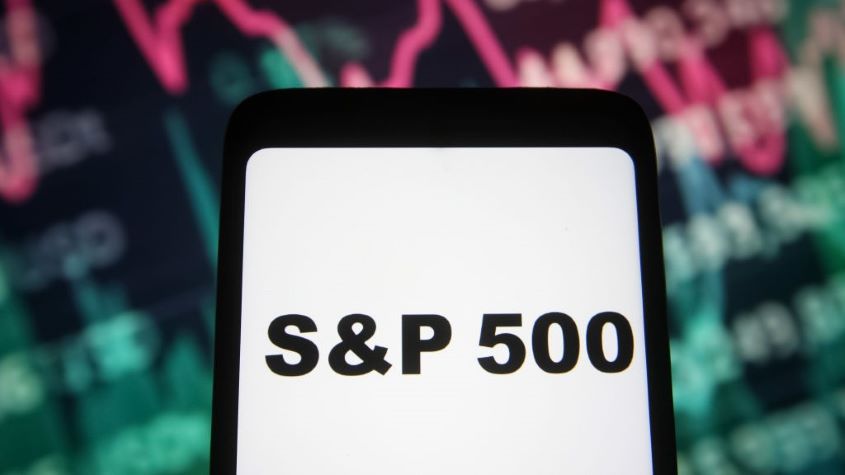Get the latest financial news, insights and expert analysis from our award-winning MoneyWeek team, to help you understand what really matters when it comes to your finances.
You are now subscribed
Your newsletter sign-up was successful
Want to add more newsletters?

Twice daily
MoneyWeek
Get the latest financial news, insights and expert analysis from our award-winning MoneyWeek team, to help you understand what really matters when it comes to your finances.

Four times a week
Look After My Bills
Sign up to our free money-saving newsletter, filled with the latest news and expert advice to help you find the best tips and deals for managing your bills. Start saving today!
Updated August 2018
Currency risk (or exchange-rate risk), as applied to investment, is the extra layer of risk you take by owning an asset in a foreign currency.
Say you are a UK-based investor and you buy an S&P 500 tracker, which is denominated in US dollars. The US stockmarket stays flat, but the pound falls in value against the dollar. As a result, your S&P 500 holding would gain value in sterling terms, even though the market has stayed flat.
MoneyWeek
Subscribe to MoneyWeek today and get your first six magazine issues absolutely FREE

Sign up to Money Morning
Don't miss the latest investment and personal finances news, market analysis, plus money-saving tips with our free twice-daily newsletter
Don't miss the latest investment and personal finances news, market analysis, plus money-saving tips with our free twice-daily newsletter
In the same situation, if the dollar had weakened against the pound, then your holding would have lost value in sterling terms. So, currency risk represents a further factor that can affect your returns, either positively or negatively.
One way to try to tackle currency risk is by hedging. Put simply, this involves using derivatives to neutralise movements in exchange rates, leaving the investor exposed only to the underlying asset class. However, this is not a cut- and-dried decision, as we discuss above.
One factor to consider is that exposure to foreign currencies can be a useful feature of global portfolio diversification, rather than an irritating side-effect. As the slide in sterling after the Brexit vote demonstrated, owning overseas assets when your home currency is on the way down is a nice way to diversify away some geopolitical risks.
Also, remember that most major stockmarkets contain many multinationals, all of which are exposed to currency risk. For example, almost half the revenues generated by S&P 500 companies come from outside the US and the figure is more than two- thirds for the FTSE 100. So even if you invest solely in Britain's "headline" index, you are still taking currency risk it's just not as obvious.
Finally, if you decide you prefer to hedge your currency risks, do so consistently. If you chop and change your approach, you are effectively betting on currency movements and that's a recipe for disaster.
See Tim Bennett's video tutorial: Depository receipts: An easy way to invest in foreign firms.
Get the latest financial news, insights and expert analysis from our award-winning MoneyWeek team, to help you understand what really matters when it comes to your finances.
MoneyWeek is written by a team of experienced and award-winning journalists, plus expert columnists. As well as daily digital news and features, MoneyWeek also publishes a weekly magazine, covering investing and personal finance. From share tips, pensions, gold to practical investment tips - we provide a round-up to help you make money and keep it.
-
 Should you buy an active ETF?
Should you buy an active ETF?ETFs are often mischaracterised as passive products, but they can be a convenient way to add active management to your portfolio
-
 Power up your pension before 5 April – easy ways to save before the tax year end
Power up your pension before 5 April – easy ways to save before the tax year endWith the end of the tax year looming, pension savers currently have a window to review and maximise what’s going into their retirement funds – we look at how
-
 GDP
GDPGlossary Gross domestic product (GDP) is a measure of the total amount of goods and services produced by a country in a specific period of time, usually a year or a quarter.
-
Index provider
Glossary Stockmarket indices such as the FTSE 100 play a huge role in investment. But where do they come from and who maintains them?
-
Index fund
Glossary Index funds (also known as passive funds or "trackers") aim to track the performance of a particular index, such as the FTSE 100 or S&P 500.
-
Indices
Glossary There are indices for every sort of market, but retail investors are probably most familiar with those related to stock markets.
-
Low volatility
Glossary Low volatility – or “low vol” – investing means buying shares (or bonds) that tend to go up or down in price by less than the overall market (in other words, they’re less volatile).
-
Q ratio
Glossary The Q ratio, or Tobin's Q, can be a reliable measure of stockmarket value.
-
 S&P 500 index
S&P 500 indexGlossary The S&P 500 index is one of the most widely tracked stock market indices in the world. Here’s a rundown of the index and why it’s so important
-
 Target 2
Target 2Glossary Target is a payment system used by Europe’s central banks for urgent real-time electronic transfers.

